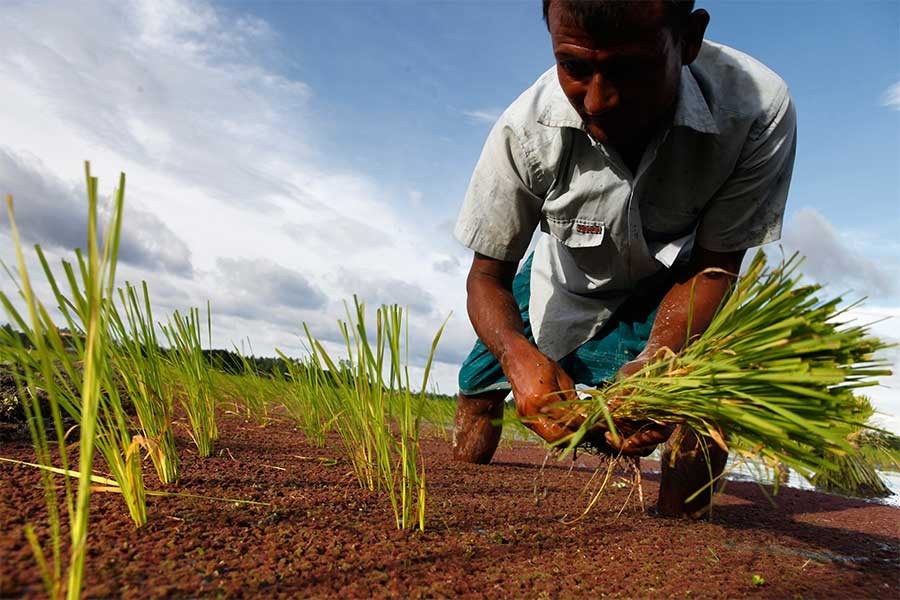Finance Minister AHM Mustafa Kamal has said the agriculture sector takes priority in Bangladesh’s budget as the country seeks to overcome the COVID-19 crisis, second only to health.
The minister has earmarked Tk 225 billion for the agriculture sector as part of the initiative to maintain the momentum of the sector in the wake of the COVID-19 epidemic and its impact on the economy. The original allocation for the sector in fiscal 2019-20 was Tk 215 billion.
The decision was announced on Thursday as part of the unveiling of the Tk 5.68 trillion budget for the fiscal year starting July 1.
“One of our key priorities in our post-COVID economic recovery plan is to keep the momentum of agricultural production,” Kamal said. “We have taken some important steps to maintain the growth in agriculture, and thus to ensure food security for our people.”
The government also proposes Tk 95 billion in the fiscal year for agricultural subsidies. An additional Tk 20 billion has been allocated to incentivise farm mechanisation, reports bdnews24.com.
The government has also raised its targets for the procurement and distribution of rice and paddy by 200,000 tonnes in the coming fiscal year.
The decision will “ensure that farmers get fair price for their produce while at the same time the retail market price of rice remains stable”, Kamal said.
The government is also planning two refinancing schemes for the sector, with Tk 50 billion agricultural credit to farmers and another Tk 30 billion for small income farmers and traders in the sector.
The sector will also be able to take advantage of Tk 20 billion to expand low-interest credit facilities to poor farmers, recently repatriated overseas workers and skilled but unemployed youths to enable them to take up self-employment ventures in sectors like agricultural production, agro-based service, small business, cottage industries and SMEs.
Several steps are being taken to boost food production including an emphasis on farm mechanisation, incentives for irrigation and seeds, and continued subsidies for fertilisers.
The risk of a famine in the post-COVID-19 world means that one of the main challenges for the government is to ensure food and nutrition security for the large population of Bangladesh, while protecting the lives and livelihoods of farmers and farm labourers, Minister Kamal said.


